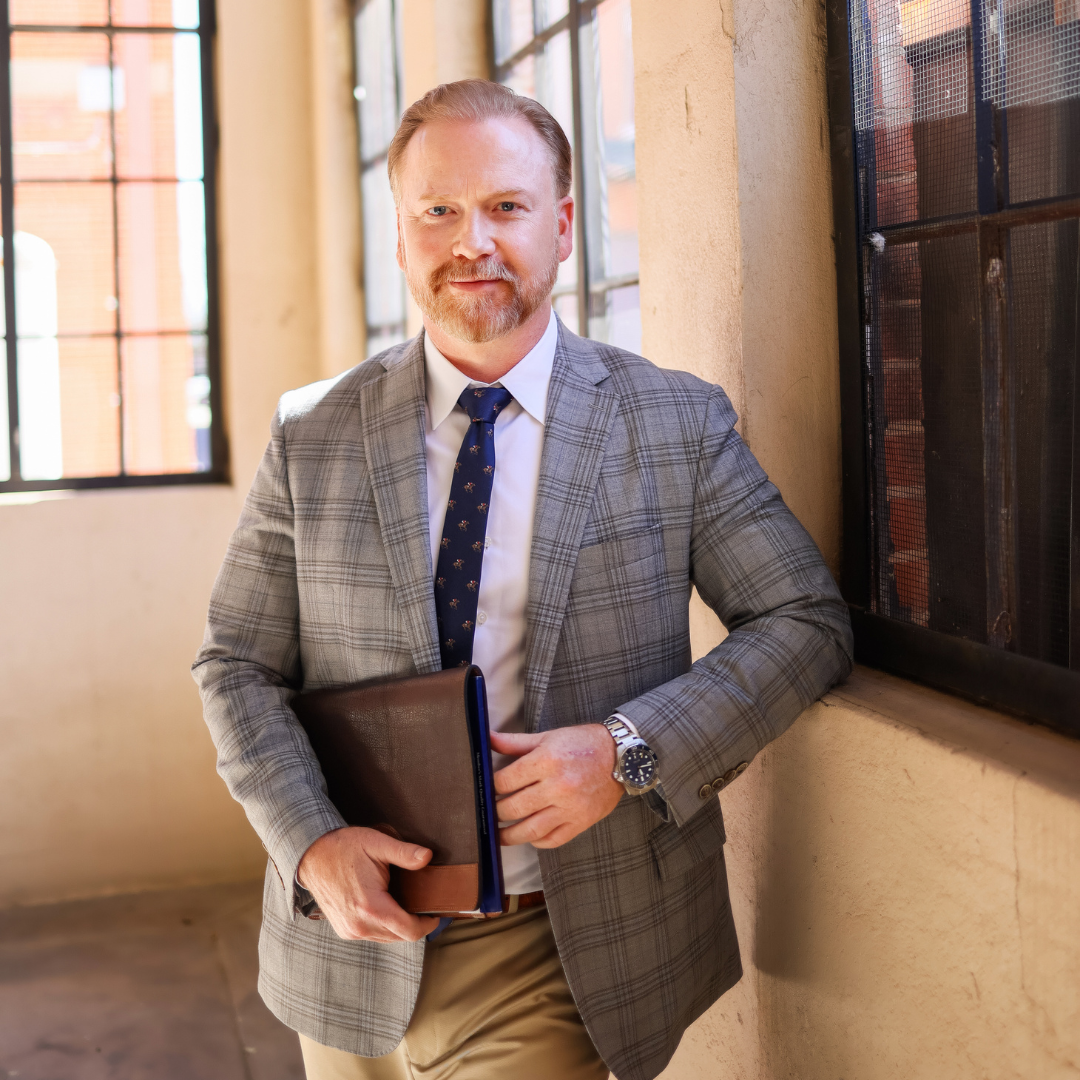Texas legalized constitutional carry in 2021, making it a hot topic ever since. But what does it mean to carry a firearm without a permit?
What key legal details should you know as a responsible gun owner in the Lone Star State? And, just as importantly, how do Texas laws fit into the broader landscape of firearm rights?
In this post, we’ll explore these questions in detail. Understanding constitutional carry is important whether you're a lifelong Texan or someone just passing through. An experienced criminal defense lawyer in Abilene, Texas, is ready to address all your questions and provide the guidance you need.
What Is Constitutional Carry?
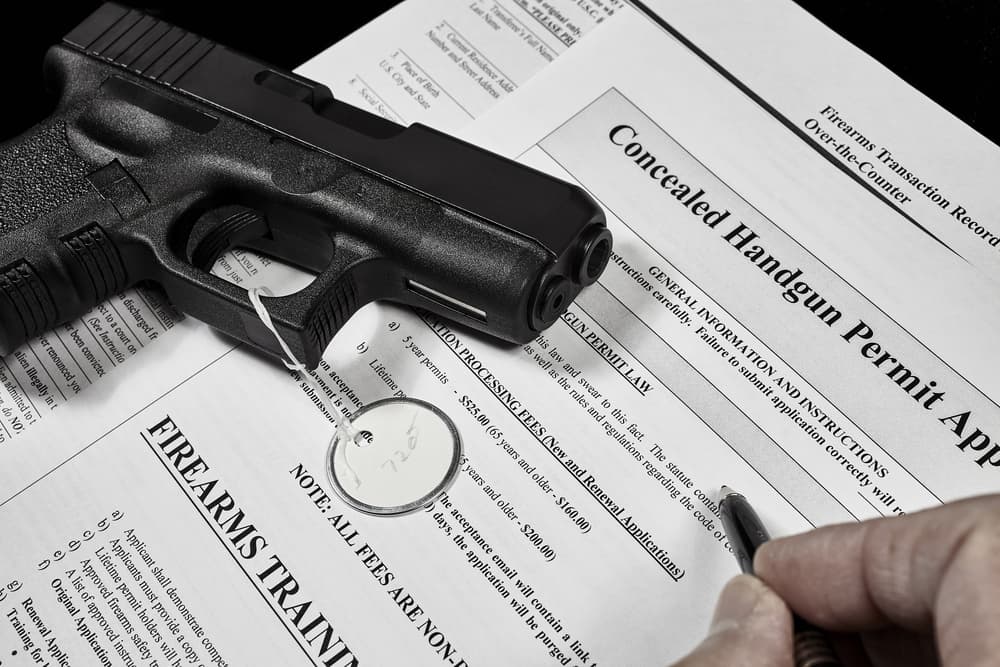
In simple terms, constitutional carry allows residents of Texas to carry a handgun in public—either openly or concealed—without needing to obtain a license or permit.
This law was officially passed on September 1, 2021, when Gov. Greg Abbott signed House Bill 1927 into law. Before this, anyone wishing to carry a handgun (either openly or concealed) had to apply for and receive a License to Carry (LTC) from the Texas Department of Public Safety (DPS).
But now, if you are over 21 and meet the other legal requirements, you can carry a handgun without having to go through the application process. This shift has sparked debates and discussions among Texas residents, law enforcement, and gun advocates alike, but you need to understand how it works in practice.
Constitutional carry derives from the belief that the Second Amendment grants individuals the right to carry firearms without unnecessary government restrictions.
Thus, Texas has eliminated the need for permits to carry in public spaces.
Eligibility and Restrictions
Even though constitutional carry removes the need for a permit, it doesn’t give everyone the right to carry. Texas still sets eligibility requirements that you must meet.
Here are the basic eligibility rules:
- Age Requirement: Only those at least 21 years old can carry a handgun in Texas.
- Criminal Record: People with certain criminal records, such as those convicted of domestic violence or certain types of assault, cannot carry a weapon.
- Mental Health: If you have a history of mental health problems that result in court-ordered restrictions, you could face legal consequences if caught carrying a firearm.
- Legal Presence: Citizens and lawful residents can carry, provided they meet the age and criminal background criteria. Undocumented immigrants or those barred from residing in the state cannot legally carry firearms.
Additionally, intoxicated people cannot carry a firearm, so never carry in situations where you might use alcohol or drugs.
Where Can You Carry?
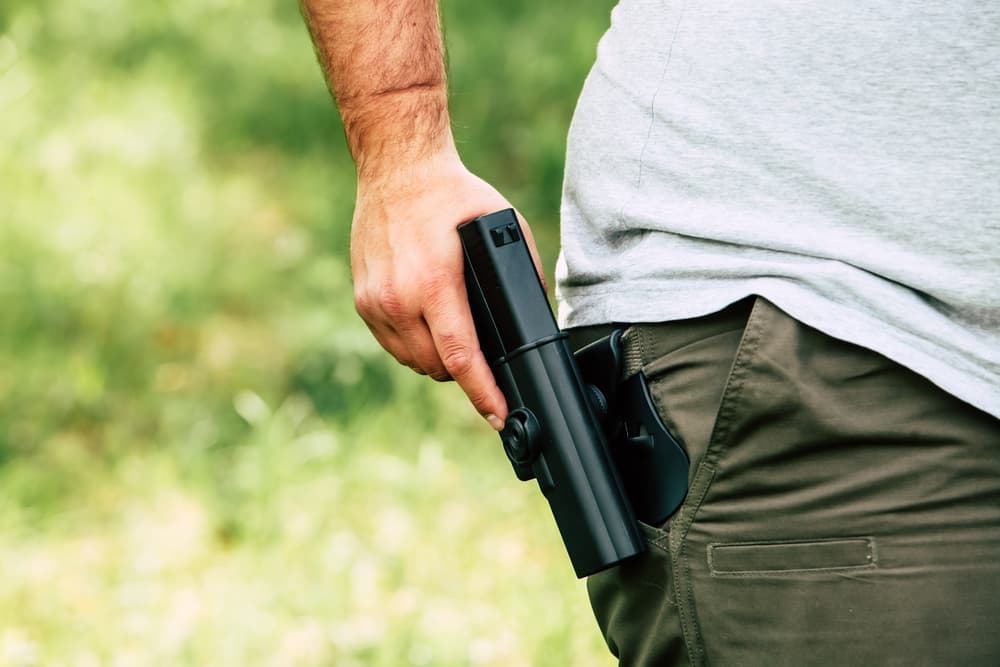
One of the most frequently asked questions about constitutional carry is, “Where can I carry my handgun?” The short answer is that you can carry in most public places, with some notable exceptions.
Here’s a breakdown of where you can and cannot carry a firearm in Texas:
Where You Can Carry a Firearm:
- Public Areas: Texas law allows you to carry a handgun in most public areas, including parks, streets, and sidewalks. You can carry openly or concealed without a license.
- Vehicles: If you're in a car, truck, or other motor vehicle, you can carry a firearm without a permit, so long as you conceal the firearm from others and carry it in a holster, glove box, or securely store it in a compartment. Never store a firearm where others can access it.
Where You Cannot Carry a Firearm:
- Schools and Educational Institutions: The law prohibits firearms on the premises of public or private schools, colleges, and universities, with limited exceptions. For instance, licensed students can carry a firearm on a college campus if they conceal the weapon and the student follows university-specific guidelines.
- Government Buildings: Certain government buildings are off-limits for firearms, including courthouses, jails, and certain public office buildings. You cannot carry a firearm into a polling place or during an election period either.
- Bars and Alcohol-Serving Establishments: Texas law prohibits firearms in establishments where alcohol is sold, such as bars and nightclubs, unless the business owner explicitly allows it. If you are in a restaurant that serves alcohol, check whether there are signs posted indicating whether or not guns are allowed.
- Private Property: Private property owners can prohibit others from carrying firearms on their premises. You may encounter signs at entrances to businesses or residential properties that read "No Guns Allowed." You must comply with these legally binding signs to avoid legal issues.
- Events: Certain events, such as concerts, rallies, and parades, may restrict firearms. Check the guidelines for specific events you plan to attend in Texas, particularly if they’re held at venues like the AT&T Stadium in Arlington or the Toyota Center in Houston.
Other Notable Restrictions
Additionally, while constitutional carry allows you to carry in many places, you cannot carry a firearm if you are intoxicated. This includes both alcohol and illegal drugs, so if you plan to attend an event in downtown Austin or a sports bar in San Antonio, make sure you do not exceed the legal limit while carrying.
Open vs. Concealed Carry
Another important distinction under constitutional carry is between open carry and concealed carry.
Here’s the difference:
- Open Carry: This involves carrying your firearm where others can see it, typically in a holster on your hip. While Texas allows open carry under the constitutional carry law, many gun owners still prefer concealed carry to avoid attracting attention or creating unnecessary conflict.
- Concealed Carry: This involves hiding your firearm so the public can’t see it, usually by carrying it in a concealed holster or bag. Texas allows both open and concealed carry, but many Texans opt for concealed carry for practicality and personal safety.
One advantage of having a License to Carry (LTC) is that you can also carry your firearm in places that only allow concealed carry. For instance, many establishments—such as churches or some government buildings—permit concealed carry but prohibit open carry.
Vehicle Carry Laws
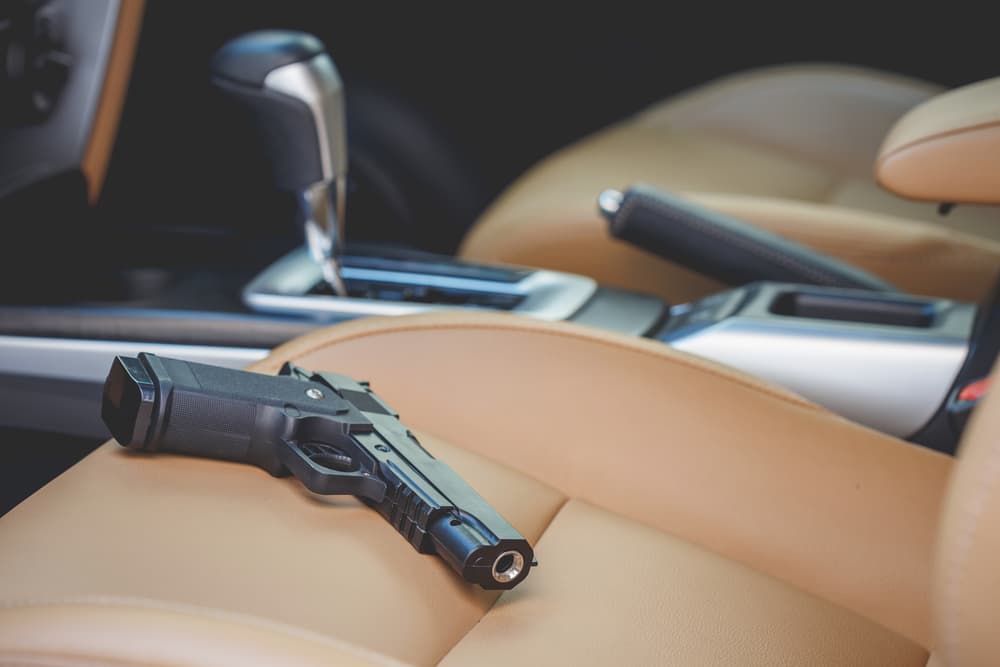
Texas has specific rules for carrying a firearm in your vehicle. As long as nothing prohibits you from possessing a firearm, you can carry a handgun in your vehicle without a permit.
However, you must store guns:
- In holsters or where others cannot see them.
- Out of reach of someone else who is traveling in the vehicle, particularly if you did not secure or properly store the handgun.
For example, if you’re traveling along Interstate 10 near San Antonio or U.S. Highway 281 outside of San Angelo, you can safely store your handgun in your vehicle, but secure it in the glove compartment or out of plain sight.
Reciprocity With Other States
Texas’s constitutional carry law only applies within Texas. If you plan to travel to other states, you need to understand their laws regarding concealed or open carry.
However, if you obtain a License to Carry (LTC), Texas has reciprocity agreements with many other states, meaning your Texas LTC may allow you to carry in those states as well.
States like New Mexico, Oklahoma, and Arkansas honor Texas LTCs, but each state has its own rules. Always check with the state’s specific regulations before traveling.
The Importance of Firearm Safety and Responsibility
Even though constitutional carry gives you the freedom to carry a handgun without a permit, practice firearm safety and responsibility.
Gun safety is about more than following the letter of the law—it’s about protecting yourself, your family, and your community.
- Training: While Texas does not require training under constitutional carry, Many Texans choose to take courses to learn more about safely carrying a firearm, handling it under stress, and using it responsibly.
- Safe Storage: Always store your firearm securely, particularly if you have children. The Texas Penal Code emphasizes safe storage, especially in homes or vehicles.
Violating Texas Firearms Laws: What You Need to Know
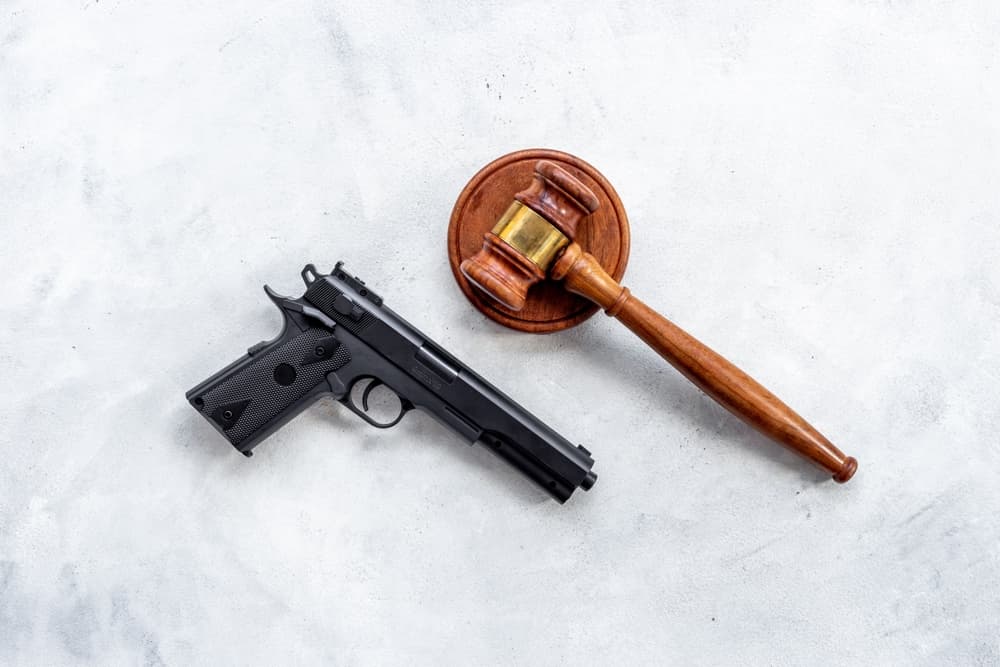
In Texas, numerous laws govern the use, possession, and carrying of firearms, and violating these laws can lead to significant legal consequences. While constitutional carry allows you to carry a firearm without a permit, it doesn’t remove the responsibility of adhering to other firearm-related laws.
Violating these regulations can result in criminal charges, fines, and even jail time.
Below, we’ll walk through common firearm violations, their associated penalties, and what you should know to avoid legal pitfalls.
Carrying a Firearm in Prohibited Locations
One of the most common mistakes people make when carrying a firearm under constitutional carry is carrying a firearm into a location where the law does not permit it. Texas law specifically prohibits carrying firearms in certain locations, and ignoring these restrictions can result in serious legal trouble.
Common Violations of Carrying in Restricted Areas:
- Educational Institutions: The law prohibits carrying a firearm on the grounds of a school, college, or university. This includes public and private schools and any educational institution that is open to the public. Violating this restriction can result in a third-degree felony and can lead to a penalty of up to 10 years in prison and fines of up to $10,000.
- Exceptions: Some limited exceptions exist for licensed people to carry firearms on college campuses. However, you must conceal the firearm and comply with campus-specific regulations.
- Government Buildings: The law prohibits firearms in certain government buildings, such as courthouses, polling places during an election, and public offices. If you bring a firearm into one of these places, you could face a Class A misdemeanor (for general government buildings) or more severe penalties for entering a courthouse.
- Penalties: Penalties for violating firearm restrictions in government buildings vary depending on location and context. For example, bringing a firearm into a courthouse can lead to serious charges, including state jail felony penalties, resulting in six months to two years in jail and significant fines.
- Bars and Alcohol Serving Establishments: If you are in a bar or any other business where more than 51% of its income comes from alcohol sales, you cannot carry a firearm. Texas law considers these establishments dangerous environments for firearms, and violating this law can lead to a Class A misdemeanor.
- Private Property with "No Guns" Signs: Texas law allows private property owners to post signs prohibiting firearms on their premises. If you fail to observe these signs, you can face criminal trespassing charges, a Class A misdemeanor. This means you could face one year in jail and fines of $4,000. These penalties can vary based on the circumstances, such as whether you noticed the sign and whether the business owner requested you to leave.
Do You Need Legal Assistance?
Constitutional carry in Texas represents a major shift in how we view gun ownership and the right to carry firearms. While the law may seem straightforward, there are still many nuances to remember—especially when it comes to where you can carry, how you carry, and your responsibilities as a gun owner.
Texas gun laws will continue to evolve, so every Texan—whether in Dallas, Fort Worth, or Lubbock—must stay informed and aware of the laws governing their rights and obligations when carrying firearms.
At the Law Offices of David White, we understand how to navigate firearm laws and the criminal charges involving them. We're here to assist if you face legal questions or need help understanding how the law applies to your situation. Call us today at (325) 739-8312 to speak to a legal team member.
